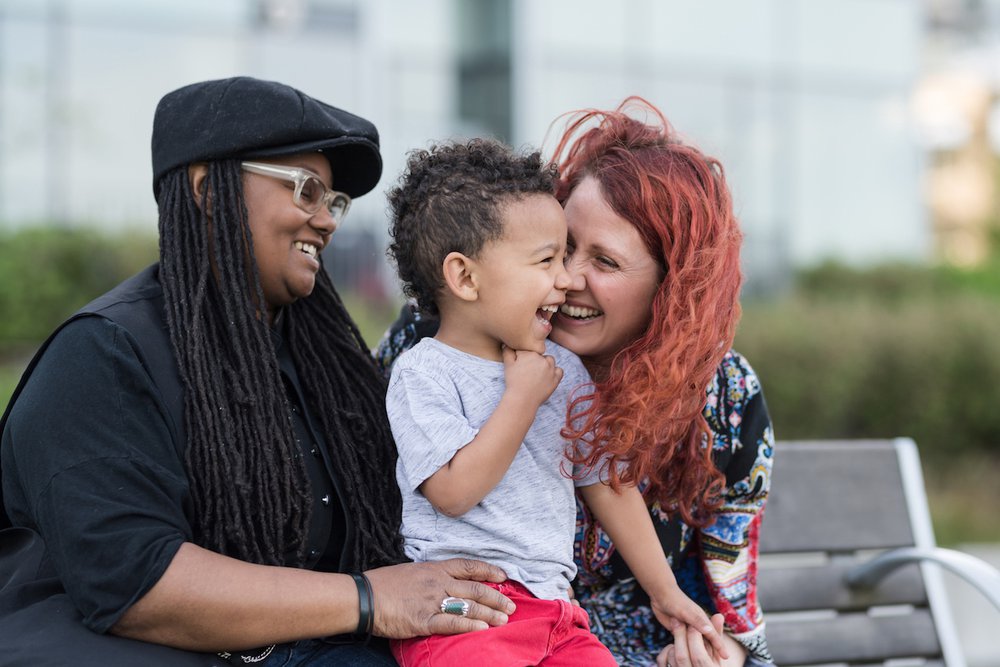LGBTQ+ and Fostering
It’s really important that our foster carers reflect current, diverse family structures in society.
At Action for Children Fostering we welcome all potential foster carers including those from the LGBTQ+ community.
Providing a safe and loving home for the children we care for is always our main priority. If you’re a member of the LGBTQ+ community and think you could do this, we would love to hear from you.
It’s really important that our foster carers reflect current, diverse family structures in society.
At Action for Children Fostering we welcome all potential foster carers including those from the LGBTQ+ community. Providing a safe and loving home for the children we care for is always our main priority. If you’re a member of the LGBTQ+ community and think you could do this, we would love to hear from you.
Research has revealed that just under a third of all LGBTQ+ people in the UK still believe that they are barred from fostering or adoption on the grounds of their sexuality or gender identity.
This is despite the change of law, making it unlawful to discriminate against foster carers on the grounds of their sexual orientation.
LGBTQ+ couples could now find the prospect of fostering more achievable and may be attracted to thinking about what they could offer in this role. LGBTQ+ foster carers also have the right to appear as legal guardians in the fostering paperwork.

Sadly, harmful myths, misinformation and stereotyping are often reasons why LGBTQ+ couples and individuals steer clear of the fostering process. This is often the case for single, male foster carers too.
The idea that fostering is only for ‘traditional’ heterosexual families is not only wrong but is also harmful to the fostering sector. There has been much research dispelling these myths and showing evidence that LGBTQ+ foster carers are often better equipped to deal with issues of difference, tolerance and acceptance.
- There is absolutely no evidence to support the myth that children need equal parenting a male and female to develop and thrive.
- Studies show that same-sex parenting has no difference on a child’s physical or emotional health.
- What every child needs is a safe and loving home where they are supported and nurtured.
We’re committed to being fair and inclusive across our whole organisation.
We believe in promoting equality, valuing diversity, and working inclusively. This is the world we want for our staff, volunteers and the people we support. It informs our campaigns. And it’s the heart of everything we do to protect and promote children’s rights.
We don’t tolerate bullying, harassment and victimisation. And we’re working to break down barriers in our services. We do this through regular consultation, monitoring and review.
It’s important to us to protect the people we work with, and to give everyone a fair chance in life.
As a foster carer with Action for Children Fostering, you will receive a high level of professional support and training and together we can plan, develop and tailor specific training opportunities for you.
Vulnerable children and young people often enter the care system with trauma and challenging behaviour. They may have experienced abuse or neglect. Many of these young people are also learning about their own sexuality and/or identity and may be LGBTQ+.
There are many young people who have been placed in care as a direct result of their sexuality. These young people need patience, understanding and empathy; as well as foster carers who have the desire to nurture and support them.

Interviews with our social workers found that members of the LGBTQ+ community were more able to see the positives in young people, as well as being more tolerant and accepting.
We also believe that LGBTQ+ foster carers are better able to give compassion and empathy to a child who feels ‘different’ - something almost all foster children feel.
If you can offer stability to a young person who may have experienced abandonment, then you could help to change their life for the better.
We have teams across the UK so you will be able to speak, confidentially, to a fostering professional local to you.
Start your fostering journey today
Get in touch



